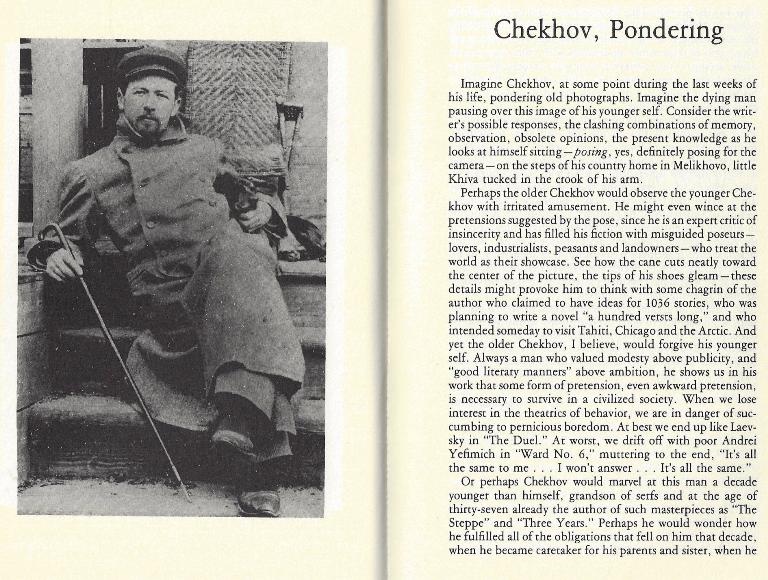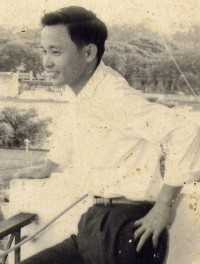 2 Looking on a Russian Photograph, 1928/1995 Chân Dung Nga |
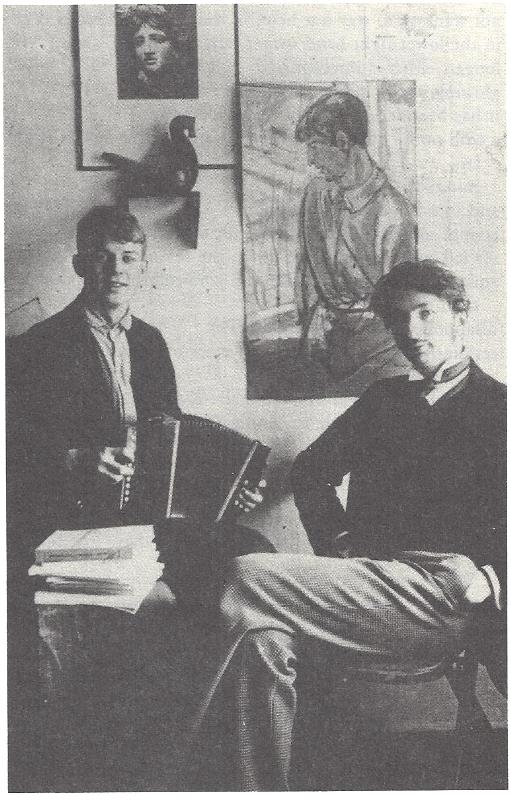 Sergei Yesenin Not very
deep in the well of the past, but over twenty years ago, I wrote a book
called
Letters to Yesenin, actual letters in the form of poems addressed to
Yesenin
because I was so far in extremis that I could think of no one else
appropriate,
somewhat in the manner of children who for periods can only communicate
with
imaginary friends. What a bloody voyage before and since. But then it
couldn't have
been otherwise because that is what happened, and given enough energy
we tend
to evolve into what we actually are. The poems I wrote are still
largely
unbearable to me, and perhaps should be made into wallpaper for a
psychoanalyst's office. I wrote Yesenin as a brother who had visited
his death scene
in St. Petersburg on a nasty hangover on a very cold autumn day, then
took a
long walk along the Nevsky Prospect to figure it out. But then the
burden of
the incomprehensible is still there. Despite all the tripery about
"healing" we are permanently inconsolable, and to be less so would
dishonor life. Now, at this moment, looking at the photo of Yesenin
holding the
concertina, there is a jolt of melancholy caused by his expectant grin.
His
soul kept saying "a good time should be had by all." He crossed the
fragile line between expecting nothing and wanting everything. He could
never
put out the fire in his hair. This young man drew water, milked cows,
chopped
wood, picked mushrooms, then went to the city as we all must, but never
really
went back home. His fabulous vices took him early, and it is not proper
for us
like some dweedling Greek chorus to pity him any more than we should
Dylan
Thomas, his cousin. He is Yesenin and he gave voice to the gods in him
to keep
them alive. You must remember, after all, that he is Yesenin. We shall
hear his
music until the planet dies.
-Jim
HarrisonChân Dung Nga  Sergei Yesenin Not very
deep in the well of the past, but over twenty years ago, I wrote a book
called
Letters to Yesenin, actual letters in the form of poems addressed to
Yesenin
because I was so far in extremis that I could think of no one else
appropriate,
somewhat in the manner of children who for periods can only communicate
with
imaginary friends. What a bloody voyage before and since. But then it
couldn't have
been otherwise because that is what happened, and given enough energy
we tend
to evolve into what we actually are. The poems I wrote are still
largely
unbearable to me, and perhaps should be made into wallpaper for a
psychoanalyst's office. I wrote Yesenin as a brother who had visited
his death scene
in St. Petersburg on a nasty hangover on a very cold autumn day, then
took a
long walk along the Nevsky Prospect to figure it out. But then the
burden of
the incomprehensible is still there. Despite all the tripery about
"healing" we are permanently inconsolable, and to be less so would
dishonor life. Now, at this moment, looking at the photo of Yesenin
holding the
concertina, there is a jolt of melancholy caused by his expectant grin.
His
soul kept saying "a good time should be had by all." He crossed the
fragile line between expecting nothing and wanting everything. He could
never
put out the fire in his hair. This young man drew water, milked cows,
chopped
wood, picked mushrooms, then went to the city as we all must, but never
really
went back home. His fabulous vices took him early, and it is not proper
for us
like some dweedling Greek chorus to pity him any more than we should
Dylan
Thomas, his cousin. He is Yesenin and he gave voice to the gods in him
to keep
them alive. You must remember, after all, that he is Yesenin. We shall
hear his
music until the planet dies.
-Jim
Harrison 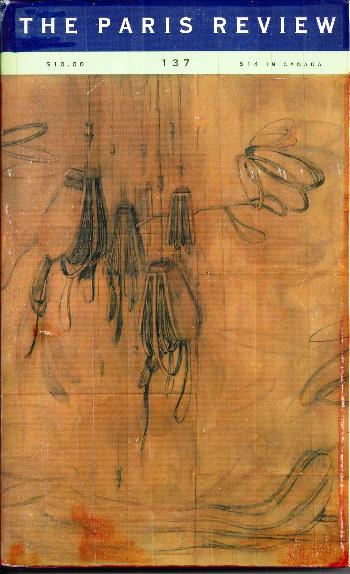 Winter 1995: Một trong những số báo
đầu tiên của
GCC, April, 98. Trong có bài phỏng vấn Steiner. Bèn chơi liền!
Ba bài thơ của Simic, là tìm đọc sau đó. Đã post & dịch trên Tin Văn, Và "Chân Dung Nga". Bài dưới đây, cũng trong số báo nói trên: De Iuventute When I was a
young man Now that I'm
old and
girls will have none of me I must try to imagine what it would have been like with each of them if I had taken some pains to learn to please them. James Laughlin De Iuventute
Khi tớ còn trẻ Mê săn gái Mỗi lần vớ được một em Là hăm hở như... Trâu Nước Hết em này tới em khác! Về già, thua! Và tớ phải cố tưởng tượng Giả như còn, thì Phải cố mà học cho bằng được Nỗi đau Khi hầu hạ em! Shadow
Publishing Company
Trong số báo, còn 1 kỷ
niệm, của 1 tác giả, về lần gặp Beckett, cũng thật tuyệt. Đã giới thiệu
trên TV
Barney
Rosset, the founder of the Grove Press in the early fifties as well as
the
distinguished literary and political magazine, the Evergreen Review
(both
institutions published Samuel Beckett's earliest work) lives and works
in a
Greenwich Village walk-up where he now publishes the Blue Moon Press.
The
offices are a long way up -four flights. On the third floor is a
loft-like
room. At the far end is a Ping-Pong table with one end up on its hinges
so that
half the table faces the player like a backboard. Rosset goes down
there on
occasion and practices. INTERVIEWER - George
Plimpton The Paris
Review,Winter 1995 Beckett là 1 người quân tử. Tôi nghĩ người ta phịa ra từ này, vì có ông ở trên cõi đời này.... Ui chao, vậy mà lại nhớ Quận Cam, nhớ bạn hiền. Mới nhận mail NDT, cho biết bà xã về VN, mấy tuần, sao Gấu không qua, buồn quá! Chúc Mừng Năm Mới. Take Care Please NQT Chekhov,
Pondering Imagine
Chekhov, at some point during the last weeks of his life, pondering old
photographs. Imagine the dying man pausing over this image of his
younger self.
Consider the writer's possible responses, the clashing combinations of
memory,
observation, obsolete opinions, the present knowledge as he looks at
himself
sitting -posing, yes, definitely posing for the camera-on the steps of
his
country home in Melikhovo, little Khiva tucked in the crook of his arm.
Perhaps
the older Chekhov would observe the younger Chekhov with irritated
amusement.
He might even wince at the pretensions suggested by the pose, since he
is an
expert critic of insincerity and has filled his fiction with misguided
poseurs-
lovers, industrialists, peasants and landowners-who treat the world as
their
showcase. See how the cane cuts neatly toward the center of the
picture, the
tips of his shoes gleam-these details might provoke him to think with
some
chagrin of the author who claimed to have ideas for 1036 stories, who
was
planning to write a novel "a hundred versts long," and who intended
someday to visit Tahiti, Chicago and the Arctic. And yet the older
Chekhov, I
believe, would forgive his younger self. Always a man who valued
modesty above
publicity, and "good literary manners" above ambition, he shows us in
his work that some form of pretension, even awkward pretension, is
necessary to
survive in a civilized society. When we lose interest in the theatrics
of
behavior, we are in danger of succumbing to pernicious boredom. At best
we end
up like Laevsky in "The Duel." At worst, we drift off with poor
Andrei Yefimich in "Ward No.6," muttering to the end, "It's all
the same to me ... I won't answer ... It's all the same." Or perhaps
Chekhov would marvel at this man a decade younger than himself,
grandson of
serfs and at the age of thirty-seven already the author of such
masterpieces as
"The Steppe" and "Three Years." Perhaps he would wonder how
he fulfilled all of the obligations that fell on him that decade, when
he
became caretaker for his parents and sister, when he served as the
doctor for
the local peasants and as squire of the village of Melikhovo and still
managed
to make the grueling trip across Siberia to the island of Sakhalin. He
might
recall his pattern of responsible moderation with more than a little
pride,
seeing in this portrait a man who devoted himself to the problems of
others and
yet could come close himself in his study for hours at a time, pick up
his pen
and hear the grass singing in his mind. It could be, though, that the
dying
Chekhov would neither wince nor marvel at this picture but turn away in
despair, comprehending more fully than ever before his own dishonesty.
Here is
Dr. Chekhov, villain of self-deception. What did it matter that he
suffered his
first bout of blood-spitting in 1884, shortly after graduating from
medical
school? What did it matter that for thirteen years, though he treated
many
victims of tuberculosis, he refused to identify the symptoms in
himself? The
disease probably would have progressed at the same speed even had he
sought
treatment earlier. But the lack of acknowledgement is troubling. If
he'd been one
of his characters, his pose of health would have revealed itself as a
lie, and
he would have seemed pathetic in his stubborn effort to make a lasting
name for
himself. Of course, this Chekhov, the Chekhov lounging on the steps of
his
Melikhovo home, collar turned up just so, will be remembered: as the
jaunty,
brilliant writer, as the modest poseur and as a dying man unable to
acknowledge
his illness because the telling would have made death sensible. He
preferred to
tell of life.
-Joanna
Scott
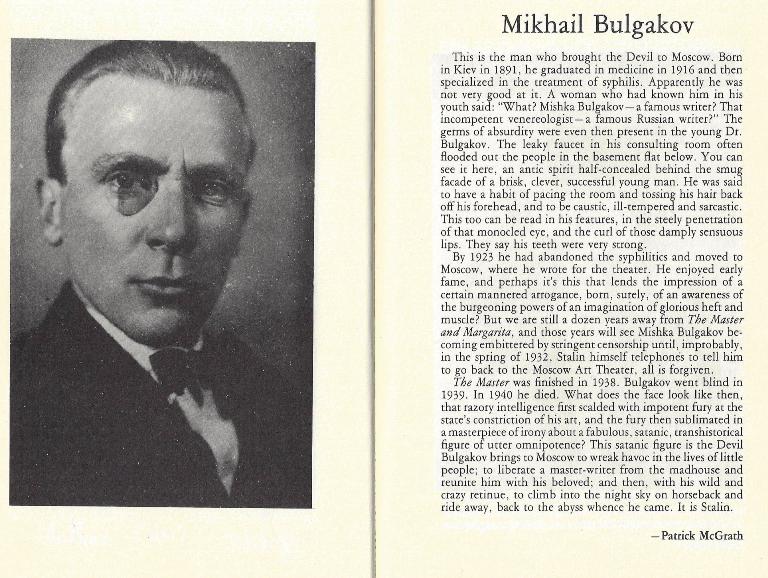 Mikhail
Bulgakov This is the
man who brought the Devil to Moscow. Born in Kiev in 1891, he graduated
in
medicine in 1916 and then specialized in the treatment of syphilis.
Apparently
he was not very good at it. A woman who had known him in his youth
said:
"What? Mishka Bulgakov- a famous writer? That incompetent
venereologist- a famous Russian writer?" The germs of absurdity were
even
then present in the young Dr. Bulgakov. The leaky faucet in his
consulting room
often flooded out the people in the basement flat below. You can see it
here,
an antic spirit half-concealed behind the smug facade of a brisk,
clever,
successful young man. He was said to have a
habit of pacing the room and tossing his hair back off his forehead,
and to be
caustic, ill-tempered and sarcastic. This too can be read in his
features, in
the steely penetration of that monocled eye, and the curl of those
damply
sensuous lips. They say his teeth were very strong. - Patrick
McGrath Tay này đem
Quỉ tới Hà Lội - ấy chết xin lỗi – Mút Ku. Sinh năm 1891, học y khoa,
ra trường
năm 1916, chuyên trị tim la. Có vẻ như ông đếch biết gì về bịnh này, hà
hà! Một
bà biết ông từ khi còn thanh niên, phán, “Cái gì? Mishka Bulgakov? Cái
tên bác sĩ vô tài bất tướng, chẳng biết tí gì về giang mai, hột xoài mà
là nhà
văn Nga Xô nổi tiếng ư?  Winter 1995: Một trong những số báo
đầu tiên của
GCC, April, 98. Trong có bài phỏng vấn Steiner. Bèn chơi liền! Charles Simic Against Winter The truth is dark under
your eyelids. A meek little lamb you
grew your wool Winter coming. Like the
last heroic soldier The Paris Review, Issue 137,1995 Chống Đông Sự thực thì mầu xám dưới
mi mắt anh Con cừu nhỏ, anh vỗ béo bộ
lông của anh Mùa Đông tới. Như tên lính
anh dũng cuối cùng 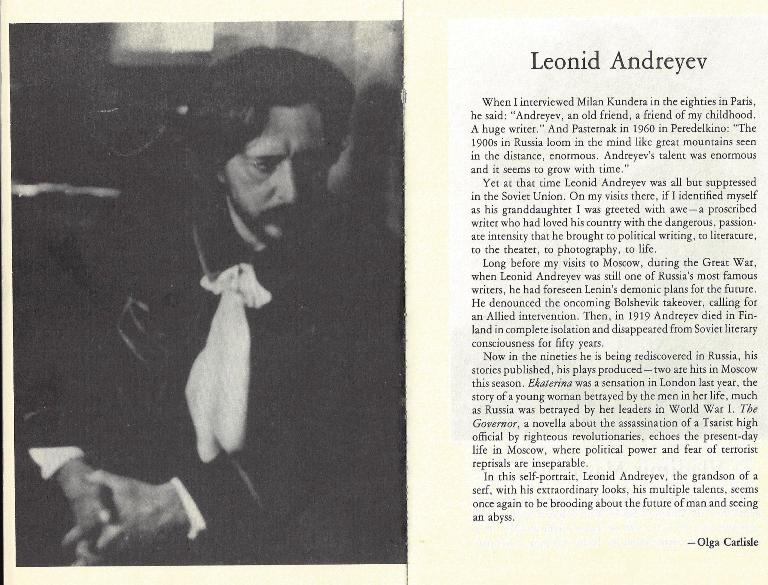 The portraits that follow are from a large number of photographs recently recovered from sealed archives in Moscow, some-rumor has it-from a cache in the bottom of an elevator shaft. Five of those that follow, Akhmatova, Chekhov (with dog), Nabokov, Pasternak (with book), and Tolstoy (on horseback) are from a volume entitled The Russian Century, published early last year by Random House. Seven photographs from that research, which were not incorporated in The Russian Century, are published here for the first time: Bulgakov, Bunin, Eisenstein (in a group with Pasternak and Mayakovski), Gorki, Mayakovski, Nabokov (with mother and sister), Tolstoy (with Chekhov), and Yesenin. The photographs of Andreyev, Babel, and Kharms were supplied by the writers who did the texts on them. The photograph of Dostoyevsky is from the Bettmann archives. Writers who were thought to have an especial affinity with particular Russian authors were asked to provide the accompanying texts. We are immensely in their debt for their cooperation. The Paris
Review Winter 1995 Chân Dung
Nga Những bức
hình sau đây là từ một lố mới kiếm thấy, từ những hồ sơ có đóng mộc ở
Moscow, một
vài bức có giai thoại riêng, thí dụ, đã được giấu kỹ trong ống thông
hơi ở tận
đáy thang máy! Năm trong số, Akhmatova, Chekhov [với con chó], Nabokov,
Pasternak (với sách), và Tolstoy (cưỡi ngựa), từ một cuốn có tên là Thế
Kỷ Nga,
xb cuối năm ngoái [1997], bởi Random House. Bẩy trong cuộc tìm kiếm đó
không được
đưa vô cuốn Thế Kỷ Nga, và được in ở đây, lần thứ nhất: Bulgakov,
Bunin,
Eisenstein (trong một nhóm với Pasternak and Mayakovski), Gorki,
Mayakovski,
Nabokov (với mẹ và chị/em) Tolstoy (với Chekhov), and Yesenin. Hình
Andreyev,
Babel, và Kharms, do những nhà văn kiếm ra cung cấp, kèm bài viết của
họ về chúng.
Hình Dostoyevsky, từ hồ sơ Bettmann. Những nhà văn nghe nói có giai
thoại, hay
mối thân quen kỳ tuyệt về những tác giả Nga, thì bèn được chúng tôi yêu
cầu, viết
đi, viết đi, và chúng tôi thực sự cám ơn họ về mối thịnh tình, và món
nợ lớn
này.  Khi tôi phỏng
vấn Milan Kundera vào thập niên 80 ở Paris, ông nói, “Andreyev, một bạn
cũ, thời
niên thiếu. Nhà văn bự". Bây giờ, vào thập niên 90,
ông lại được khám phá ra, ở Nga,
những truyện của ông được xb, kịch được được dựng – hai, “hits”, ở
Moscow, mùa này. Ekaterina là một “xăng
xa xườn” – sensation, ấn tượng, xúc động (?), ở Luân Đôn, năm ngoái,
câu
chuyện
một em Nga, trẻ, bị những đấng đàn ông trong đời em phản bội, chẳng
khác gì lũ
VC Liên Xô phản bội nhân dân của nó, trong Đệ Nhất Thế Chiến. Viên Tổng Trấn, là
1 truyện ngắn về cú ám sát một viên chức cao cấp của Nga Hoàng, bởi
những người
cách mạng chân chính, làm vọng lên không khí những ngày này ở Moscow,
nơi quyền
lực chính trị, và nỗi sợ khủng bố trả thù, thì không thể chia lìa. Olga Carlisle [Người được
Solzhenitsyn tin cẩn, lén đem “Quần Đảo Gulag” qua Tây Phương]
Chân Dung Nga
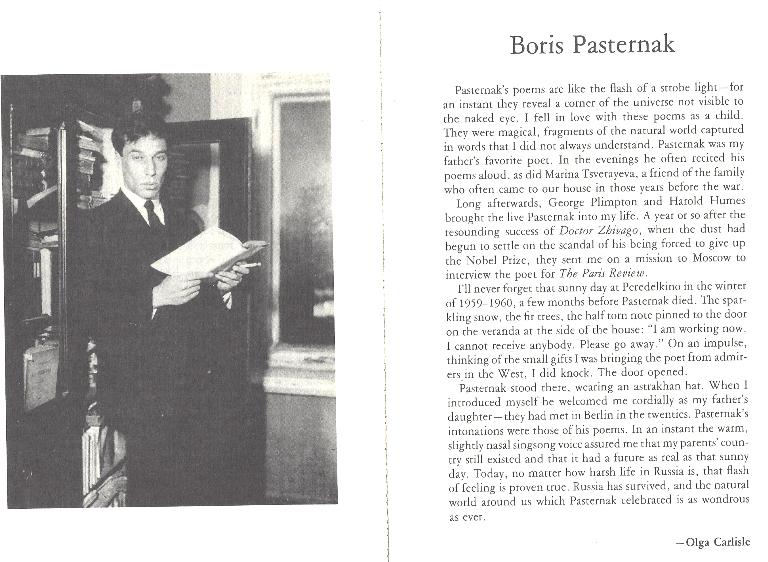 Boris
Pasternak
Pasternak's
poems are like the flash of a strobe light-for an instant they reveal a
corner
of the universe not visible to the naked eye. I fell in love with these
poems
as a child. They were
magical, fragments of the natural world captured in words that I did
not always
understand. Pasternak was my father's favorite poet. In the evenings he
often
recited his poems aloud, as did Marina Tsvetayeva, a friend of the
family who
often came to our house in those years before the war.  Người lén
đem tác phẩm của Solz qua Tây phương Đọc bài viết
1 phát, thì cái đầu óc bịnh hoạn của Gấu Cà Chớn lại hiện ra cái cảnh 1
nhà thơ
hải ngoại, đi cùng, cũng 1 nhà thơ hải ngoại - bạn của GCC, nhưng còn
là cựu sĩ
quan VNCH, bỏ chạy kịp trước 30 Tháng Tư 1975, không có lấy 1 ngày cải
tạo làm
thưốc chữa bịnh lưu vong - bèn bò về, xin yết kiến nhà thơ HC, và
1 ông châm cái đóm, hầu
thuốc lào
nhà thơ số 1 Đất Bắc! Và nhà thơ
HC bèn an ủi hai nhà thơ hải ngoại, quê hương của chúng ta vưỡn còn! Notes About Brodsky Trong một tiểu luận, Brodsky
gọi Mandelstam là một thi sĩ của văn
hóa. Brodsky chính ông, cũng là 1 thi sĩ của văn hóa, và hẳn là vì lý
do này,
ông tạo sự hài hòa với dòng sâu thẳm của thế kỷ, trong đó con người, bị
đe dọa
mất mẹ cái giống người, khám phá ra quá khứ như là một mê cung chẳng hề
có tận
cùng. Lặn sâu vô mê cung, chúng ta khám phá ra cái gì sống sót quá khứ
là kết
quả của nguyên lý phân biệt dựa trên đẳng cấp. Mandelstam, ở trong
Gulag, điên
khùng bới đống rác tìm đồ ăn, [ui chao lại nhớ Giàng Búi], là thực tại
về độc
tài bạo chúa và sự băng hoại thoái hoá bị kết án phải tuyệt diệt.
Mandelstam
đọc thơ cho vài bạn tù là khoảnh khoắc thần tiên còn hoài hoài Bài viết Sự quan trọng của
Simone Weil cũng quá tuyệt. Bắc Kít, chỉ có thứ nhà văn nhà
thơ viết dưới ánh sáng của Đảng! Cái vụ Tố Hữu khóc Stalin thảm
thiết, phải mãi gần đây Gấu mới
giải ra được, sau khi đọc một số bài viết của những Hoàng Cầm, Trần
Dần, những
tự thú, tự kiểm, sổ ghi sổ ghiếc, hồi ký Nguyễn Đăng Mạnh... Sự hèn
nhát của sĩ
phu Bắc Hà, không phải là trước Đảng, mà là trước cá nhân Tố Hữu. Cả xứ
Bắc Kít
bao nhiêu đời Tổng Bí Thư không có một tay nào xứng với Xì Ta Lin.
Mà, Xì,
như chúng ta biết, suốt đời mê văn chương, nhưng không có tài, tài văn
cũng
không, mà tài phê bình "như Thầy Cuốc", lại càng không, nên đành đóng
vai
ngự sử
văn đàn, ban phán giải thưởng, ra ơn mưa móc đối với đám nhà văn, nhà
thơ. Ngay
cả cái sự thù ghét của ông, đối với những thiên tài văn học Nga như
Osip
Mandelstam, Anna Akhmatova… bây giờ Gấu cũng giải ra được, chỉ là vì
những
người này dám đối đầu với Stalin, không hề chịu khuất phục, hay "vấp
ngã"! [Trung nhưng biến thành Bắc Kít] 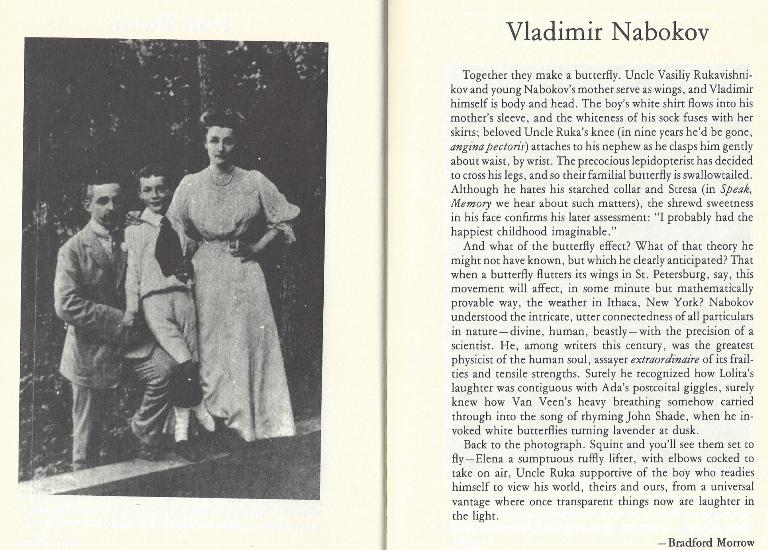
Vladimir Nabokov Together
they make a butterfly. Uncle Vasiliy Rukavishnikov and young Nabokov's
mother
serve as wings, and Vladimir himself is body and head. The boy's white
shirt
flows into his mother's sleeve, and the whiteness of his sock fuses
with her skirts;
beloved Uncle Ruka's knee (in nine years he'd be gone, angina
pectoris) attaches to his nephew as he clasps him gently about
waist, by wrist. The precocious lepidopterist has decided to cross his
legs,
and so their familial butterfly is swallow-tailed. Although he
hates his starched collar and Stresa (in Speak,
Memory we hear about such matters), the shrewd sweetness in his
face
confirms his later assessment: "I probably had the happiest childhood
imaginable." And what of
the butterfly effect? What of that theory he might not have known, but
which he
clearly anticipated? That when a butterfly flutters its wings in St.
Petersburg, say, this movement will affect, in some minute but
mathematically provable
way, the weather in Ithaca, New York? Nabokov understood the intricate,
utter
connectedness of all particulars in nature-divine, human, beastly -with
the
precision of a scientist. He, among writers this century, was the
greatest physicist
of the human soul, assayer extraordinaire
of its frailties and tensile strengths. Surely he recognized how
Lolita's laughter
was contiguous with Ada's postcoital giggles, surely knew how Van
Veen's heavy
breathing somehow carried through into the song of rhyming John Shade,
when he
invoked white butterflies turning lavender at dusk. Back to the
photograph. Squint and you'll see them set to fly-Elena a sumptuous
ruffly
lifter, with elbows cocked to take on air, Uncle Ruka supportive of the
boy who
readies himself to view his world, theirs and ours, from a universal
vantage
where once transparent things now are laughter in the light. -Bradford
Morrow 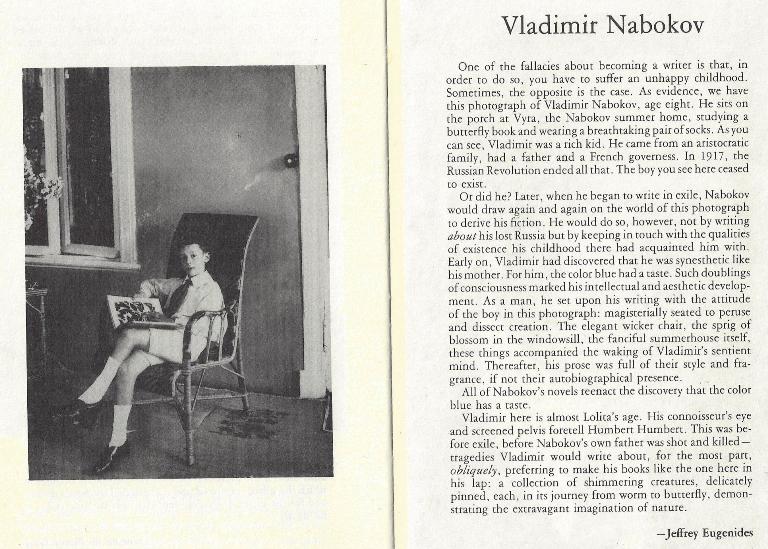 Vladimir Nabokov One of the
fallacies about becoming a writer is that, in order to do so, you have
to
suffer an unhappy childhood. Sometimes, the opposite is the case. As
evidence,
we have this photograph of Vladimir Nabokov, age eight. He sits on the
porch at
Vyra, the Nabokov summer home, studying a butterfly book and wearing a
breathtaking pair of socks. As you can see, Vladimir was a rich kid. He
came
from an aristocratic family, had a father and a French governess. In
1917, the Russian
Revolution ended all that. The boy you see here ceased to exist. Or did he?
Later, when he began to write in exile, Nabokov would draw again and
again on
the world of this photograph to derive his fiction. He would do so,
however,
not by writing about his lost Russia
but by keeping in touch with the qualities of existence his childhood
there had
acquainted him with. Early on, Vladimir had discovered that he was
synesthetic
like his mother. For him, the color blue had a taste. Such doublings of
consciousness marked his intellectual and aesthetic development. As a
man, he
set upon his writing with the attitude of the boy in this photograph:
magisterially seated to peruse and dissect creation. The elegant wicker
chair,
the sprig of blossom in the windowsill, the fanciful summerhouse
itself, these
things accompanied the waking of Vladimir's sentient mind. Thereafter,
his
prose was full of their style and fragrance, if not their
autobiographical
presence. All of
Nabokov's novels reenact the discovery that the color blue has a taste.
Vladimir
here is almost Lolita's age. His connoisseur's
eye and screened pelvis foretell Humbert Humbert. This was before
exile, before
Nabokov's own father was shot and killed- tragedies Vladimir would
write about,
for the most part, obliquely, preferring to make his books like the one
here in
his lap: a collection of shimmering creatures, delicately pinned, each,
in its
journey from worm to butterfly, demonstrating the extravagant
imagination of
nature. -Jeffrey Eugenides Một trong những quái đản
về chuyện trở thành nhà văn, là phải
có 1 tuổi
thơ khốn nạn. 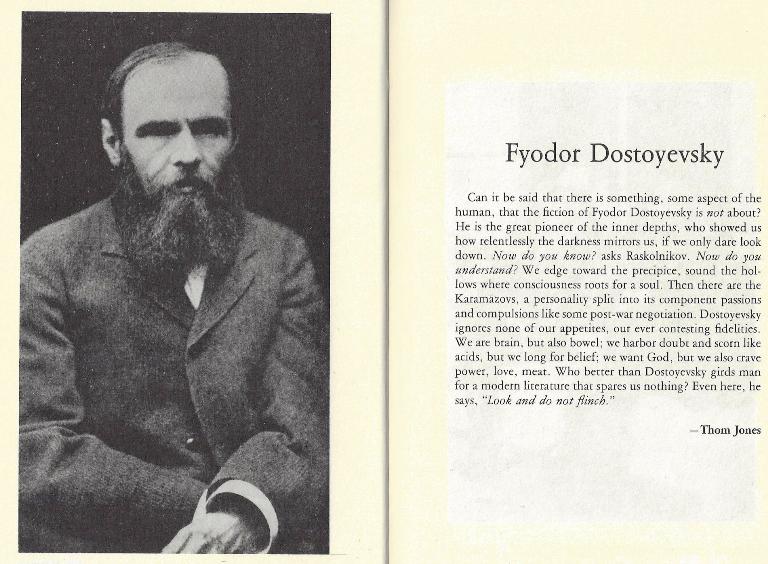 Russian
Portraits
The
portraits that follow are from a large number of photographs recently
recovered
from sealed archives in Moscow, some-rumor has it-from a cache in the
bottom of
an elevator shaft. Five of those that follow, Akhmatova, Chekhov (with
dog), Nabokov,
Pasternak (with book), and Tolstoy (on horseback) are from a volume
entitled The Russian Century,
published early last year by Random House. Seven
photographs from that research, which were not incorporated in The
Russian
Century, are published here for the first time: Bulgakov, Bunin,
Eisenstein (in
a group with Pasternak and Mayakovski), Gorki, Mayakovski, Nabokov
(with mother
and sister), Tolstoy (with Chekhov), and Yesenin. The photographs of
Andreyev,
Babel, and Kharms were supplied by the writers who did the texts on
them. The photograph
of Dostoyevsky is from the Bettmann archives. Writers who were thought
to have
an especial affinity with particular Russian authors were asked to
provide the
accompanying texts. We are
immensely in their debt for their cooperation. The Paris
Review 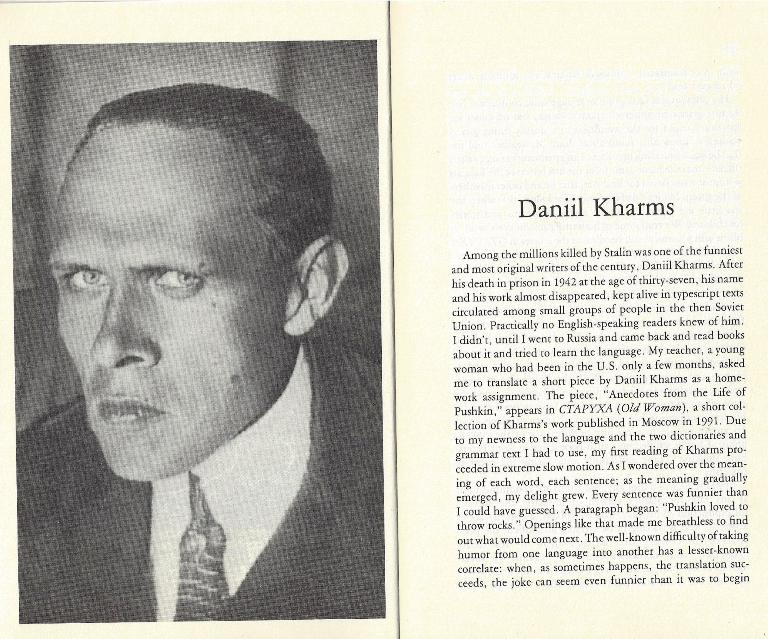 Daniil
Kharms Among the
millions killed by Stalin was one of the funniest and most original
writers of
the century, Daniil Kharms. After his death in prison in 1942 at the
age of
thirty-seven, his name and his work almost disappeared, kept alive in
typescript texts circulated among small groups of people in the then
Soviet Union.
Practically no English-speaking readers knew of him. I didn't,
until I went to Russia and came back and read books about it and tried
to learn
the language. My teacher, a young woman who had been in the U.S. only a
few
months, asked me to translate a short piece by Daniil Kharms as a
homework
assignment. The piece, "Anecdotes from the Life of Pushkin,"
appears in CTAPYXA (Old Woman), a
short collection of Kharms's work published in Moscow in 1991. Due to
my
newness to the language and the two dictionaries and grammar text I had
to use,
my first reading of Kharms proceeded in extreme slow motion. As I
wondered over
the meaning of each word, each sentence; as the meaning gradually
emerged, my
delight grew. Every sentence was, funnier than I could have guessed. A
paragraph began: "Pushkin loved to throw rocks." Openings like that
made me breathless to find out what would come next. The well-known
difficulty
of taking humor from one language into another has a lesser-known
correlate:
when, as sometimes happens, the translation succeeds, the joke can seem
even
funnier than it was to begin with. As I translated, I thought Kharms
the
funniest writer I had ever
read. -Ian Frazier Trong
số hàng triệu con người bị Stalin sát hại, có một nhà văn tức cười
nhất, uyên
nguyên nhất, của thế kỷ: Daniil Kharms. Sau khi ông chết ở trong tù,
vào năm
1942, khi 37 tuổi, tên và tác phẩm của ông hầu như biến mất, và chỉ còn
sống dưới
dạng chép tay, lưu truyền giữa những nhóm nhỏ, ở một nơi có tên là Liên
Bang Xô
Viết. 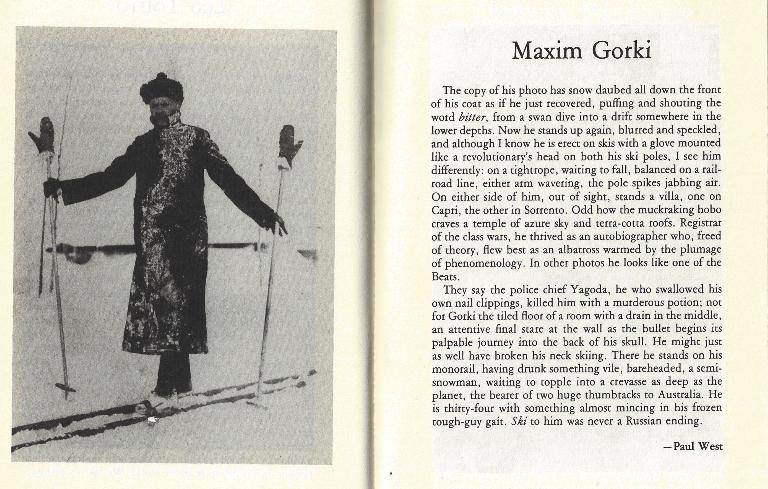 Chân
Dung Nga |
